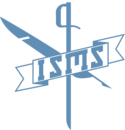Programs and Courses
These links are intended to assist in developing programs and courses at defence universities, military academies, and staff colleges, by sharing program and course information relevant to common security problems. Normal rules apply for fair use, acknowledgement, and respect for intellectual property.
A curriculum consists of content specified for a program or course of study, the context in which it is delivered (on-site, on-line, entry, mid-career, etc), and the pedagogy or andragogy intended for delivery (lectures, seminars, exercises, practicums, etc). Comparing and assessing curricula for higher education in the professions is a long-standing and international enterprise, from which the military and security professions can benefit. Please find attached two research notes on the challenges of establishing a database and comparing credentials.
Research note: Database for Curricular Materials in Security Studies 2014-03-10
Research note: Comparative Education and Credential Assessment 2014-05-22
The materials linked here are intended to help those developing materials and teaching in higher education institutions for military and security professionals. If you are interested in conducting research on military teaching and learning, please contact the Military Education Working group of the ISMS.
A program consists of a number of courses, each of which addresses a defined subject area, usually within a coherent academic discipline, but often cutting across many disciplines by virtue of the nature of military and security studies or military sciences. Different institutions may use other labels. For example, a six month staff college "course" might include a number of distinct "modules," "units," or "rotations". In this link you will find documents describing entire programs
A course addresses a subject, and consists of a defined number of contact or study hours, with specified content and/or learning outcomes. In programs or university calendars, courses typically have short descriptions which represent a framework for the instructor. The latitude that an instructor or instruction team has to delivery a course varies from full academic freedom in the classroom (within the limits imposed by the course description) to tightly prescribed materials for each class or unit within the course. A syllabus may be an institutional product, from which little deviance is tolerated, or it may be the intellectual product (and property) of a single instructor, who may choose to share it or not. A syllabus typically includes instructor information, content details, evaluation methods, rules for the conduct of the class, readings, links, and other resources. Learning outcomes and standards can usually be assessed from course syllabi.
A reading list may be a simple bibliography on a specific subject, separate from a syllabus, or it may include annotations and directions about parts of books or articles on which to focus.
Course Notes
Course notes may be prepared by an institution for instructors, for instructors for their own use, or by instructors for students. They may consist of detailed content for a single lesson or for each lesson in a course. These are particularly useful for comparing course content and learning objectives.
